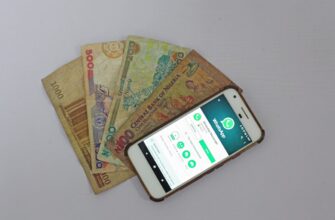The Rise of Cryptocurrency in Nigeria
Nigeria has emerged as a global leader in cryptocurrency adoption, with over 35% of the population engaging in crypto transactions. This surge is fueled by economic instability, high inflation rates, and a tech-savvy youth population seeking financial alternatives. The Central Bank of Nigeria’s (CBN) restrictions on traditional banking access for crypto businesses in 2021 paradoxically accelerated peer-to-peer (P2P) trading, positioning Nigeria as Africa’s largest crypto market.
Popular Cryptocurrencies in Nigeria
Nigerian investors favor cryptocurrencies offering stability, utility, and growth potential:
- Bitcoin (BTC): The dominant choice for store-of-value and remittances.
- Ethereum (ETH): Preferred for smart contracts and DeFi applications.
- USDT (Tether): Widely used for P2P trading to hedge against naira volatility.
- Binance Coin (BNB): Popular due to low transaction fees on Binance P2P.
- Local tokens: Projects like Bundle Africa’s token gain traction for localized solutions.
How to Buy Cryptocurrency in Nigeria
Follow these steps to start investing securely:
- Choose a P2P Platform: Sign up on Binance, Paxful, or LocalBitcoins.
- Verify Identity: Complete KYC procedures with valid ID.
- Fund Your Wallet: Deposit naira via bank transfer or mobile money.
- Place Orders: Select a seller, negotiate rates, and confirm payment.
- Secure Storage: Transfer crypto to hardware wallets like Ledger for long-term holdings.
Benefits of Using Cryptocurrency in Nigeria
Crypto addresses critical financial challenges:
- Remittance Revolution: Slashes transfer fees for $20 billion annual diaspora remittances.
- Inflation Hedge: Protects savings against 28% naira devaluation (2023).
- Financial Inclusion: Serves 38 million unbanked adults via smartphone access.
- Entrepreneurial Opportunities: Powers freelance work and cross-border e-commerce.
Challenges and Regulatory Risks
Despite growth, significant hurdles persist:
- CBN Restrictions: Banks are prohibited from crypto transactions, complicating fiat conversions.
- Scam Risks: Ponzi schemes like MMM Nigeria have eroded trust; due diligence is essential.
- Market Volatility: Sudden price swings can wipe out investments.
- Tax Uncertainty: No clear crypto tax framework exists despite SEC’s 2022 recognition as securities.
The Future of Cryptocurrency in Nigeria
Trends shaping Nigeria’s crypto landscape:
- CBDC Integration: The eNaira may incorporate blockchain interoperability.
- DeFi Expansion: Platforms like Afriex are bridging crypto and traditional finance.
- Regulatory Clarity: Anticipated frameworks could legitimize exchanges by 2025.
- Education Initiatives: Universities now offer blockchain courses to nurture talent.
Frequently Asked Questions
Q: Is cryptocurrency legal in Nigeria?
A: Yes, but banks can’t process crypto transactions. P2P trading remains legal and widespread.
Q: How do Nigerians convert crypto to naira?
A> Primarily through P2P platforms where buyers directly transfer naira to sellers’ bank accounts after crypto receipt.
Q: What’s the best crypto wallet in Nigeria?
A> Trust Wallet and MetaMask are top choices for security and local token support.
Q: Can I pay bills with cryptocurrency in Nigeria?
A> Indirectly via platforms like Bitrefill that convert crypto to airtime or gift cards for utilities.
Q: How does Nigeria regulate crypto exchanges?
A> The SEC requires registration, though most operate as P2P marketplaces to circumvent banking restrictions.






